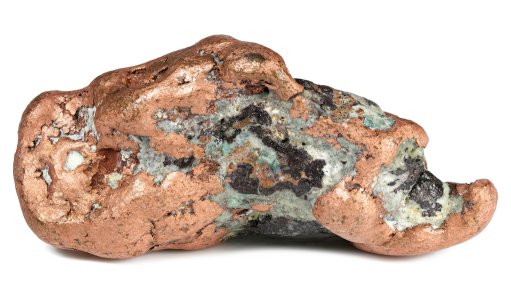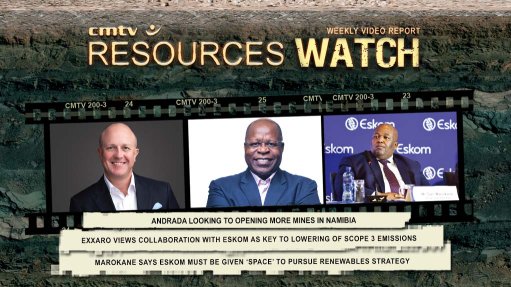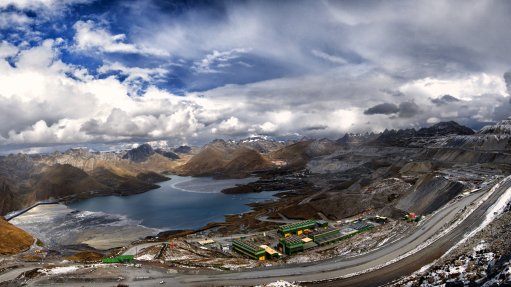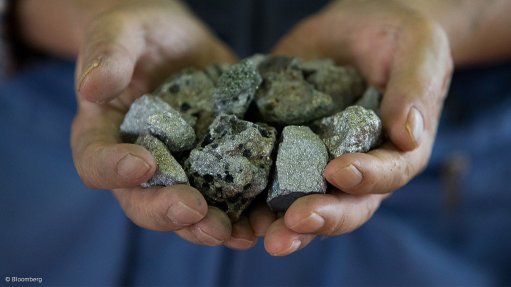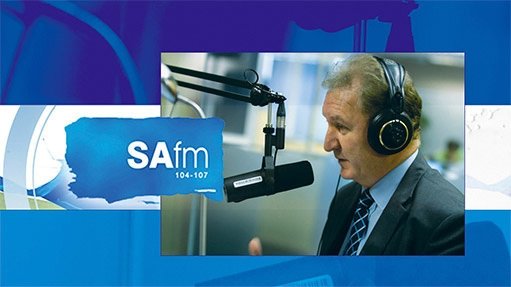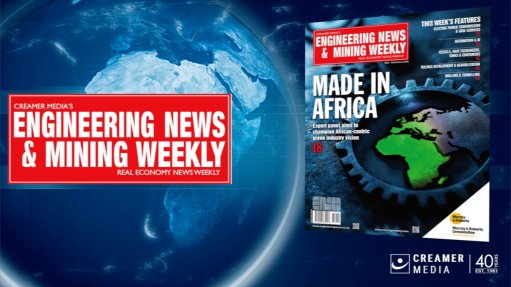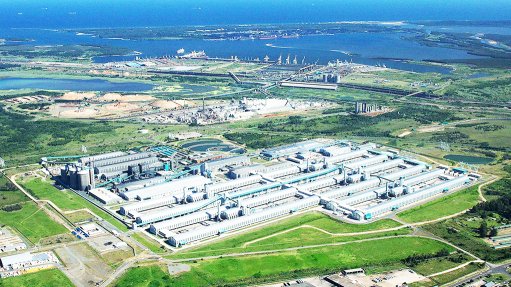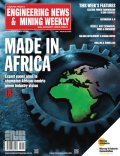Prevost drops coal bombshell

Coal analyst Xavier Prevost outlines need to look inward to Mining Weekly Online’s Martin Creamer at Fossil Fuel Foundation coal conference. Photographs: Duane Daws. Video: Nicholas Boyd. Video Editing: Lionel da Silva
JOHANNESBURG (miningweekly.com) – South Africa’s Mr Coal on Wednesday called on the country to begin reversing out of low-priced coal export markets and turn inwards towards the domestic market through a grouping of inland terminals that could provide economic logistics to the high-grade South African coal that the global market is currently spurning.
XMP Consulting coal analyst Xavier Prevost has never in the past had any problem with the exportation of coal; on the contrary, he has traditionally encouraged the export of as much coal as possible.
But right now, he points out that South Africa is finding it impossible to sell its highest grades of coal, like RB1 coal, on global markets. (Also watch the attached Creamer Media video.)
At export prices of $50/t and below, he sees the new economic imperative as coal miners helping to avoid this country's upcoming coal cliff by increasing domestic coal sales and at the same time boosting constrained power generation, not only by Eskom but also private-sector participants, using high-grade coal that the export market no longer wants.
“I’m not saying this because I am a South African fanatic who believes that South Africans should keep their resources to themselves. I’m not talking politics here, I’m talking economics,” Prevost told a Fossil Fuel Foundation conference attended by Creamer Media’s Mining Weekly Online.
What the country is managing to sell is coal in the RB3 category, or coal below 5 500 kilocals, which is what the global market wants as more and more South African coal goes to countries like India, the Middle East and Africa and no longer to Europe.
Another reality is that the former set of laid-down qualities offered by South African coal mining companies no longer exists and mines are having to supply what clients want, which is leaving top-grade RB1 coal available for local consumption.
But the problem is that there are insufficient ways of getting that high quality coal to the domestic market economically, which is why Prevost is advocating the development of a grouping of inland coal terminals to lower logistics costs and make the transport job of State rail company Transnet far easier.
“We need to change the structure of our transportation within the South African market,” Prevost told his questioning audience. (Also see Creamer Media video.)
His hope is that South Africa's local coal consumption, excluding the major consumption by Eskom and Sasol, can go well beyond the current 26-million tonnes of coal a year to something more like 80-million tonnes a year, by absorbing the high-grade export coal for mainly private power generation.
“We could take away the burden from Eskom and allow others to generate their own power,” is Prevost’s view.
In the context of low export prices, he finds the investment of more capital in export rail capacity to make “no sense whatsoever” and called on South Africa to export less and less coal.
Prevost suggests using some of that coal locally with industrial operations investing in their own boilers and power generation equipment in addition to Eskom, adding that the country should also introduce underground coal gasification and a range of other new technologies.
He advocates that South Africa mimic the coal stance taken by Indonesia, which, instead of exporting large volumes of coal into a low-priced global market, is using the country’s coal domestically for power generation by independent power producers, “which is brilliant; it’s the best thing they can do”.
While it is a fact of life that South Africa needs new coal mines for supply to power utility Eskom, Prevost queried where the State power utility would obtain its coal if not from large traditional cost-plus operations: “It’s going to go on the open market and buy somewhere else. I wish to know where it’s going to buy." (Also watch attached Creamer Media video.)
He also pointed out that the high cost of railing high-ash, low-quality coal from the emerging Waterberg coalfields was set to push price of coal to the power stations in Mpumalanga from the current R200/t to a possible R500/t, which would in turn push up the price of electricity to consumers.
Comments
Press Office
Announcements
What's On
Subscribe to improve your user experience...
Option 1 (equivalent of R125 a month):
Receive a weekly copy of Creamer Media's Engineering News & Mining Weekly magazine
(print copy for those in South Africa and e-magazine for those outside of South Africa)
Receive daily email newsletters
Access to full search results
Access archive of magazine back copies
Access to Projects in Progress
Access to ONE Research Report of your choice in PDF format
Option 2 (equivalent of R375 a month):
All benefits from Option 1
PLUS
Access to Creamer Media's Research Channel Africa for ALL Research Reports, in PDF format, on various industrial and mining sectors
including Electricity; Water; Energy Transition; Hydrogen; Roads, Rail and Ports; Coal; Gold; Platinum; Battery Metals; etc.
Already a subscriber?
Forgotten your password?
Receive weekly copy of Creamer Media's Engineering News & Mining Weekly magazine (print copy for those in South Africa and e-magazine for those outside of South Africa)
➕
Recieve daily email newsletters
➕
Access to full search results
➕
Access archive of magazine back copies
➕
Access to Projects in Progress
➕
Access to ONE Research Report of your choice in PDF format
RESEARCH CHANNEL AFRICA
R4500 (equivalent of R375 a month)
SUBSCRIBEAll benefits from Option 1
➕
Access to Creamer Media's Research Channel Africa for ALL Research Reports on various industrial and mining sectors, in PDF format, including on:
Electricity
➕
Water
➕
Energy Transition
➕
Hydrogen
➕
Roads, Rail and Ports
➕
Coal
➕
Gold
➕
Platinum
➕
Battery Metals
➕
etc.
Receive all benefits from Option 1 or Option 2 delivered to numerous people at your company
➕
Multiple User names and Passwords for simultaneous log-ins
➕
Intranet integration access to all in your organisation






